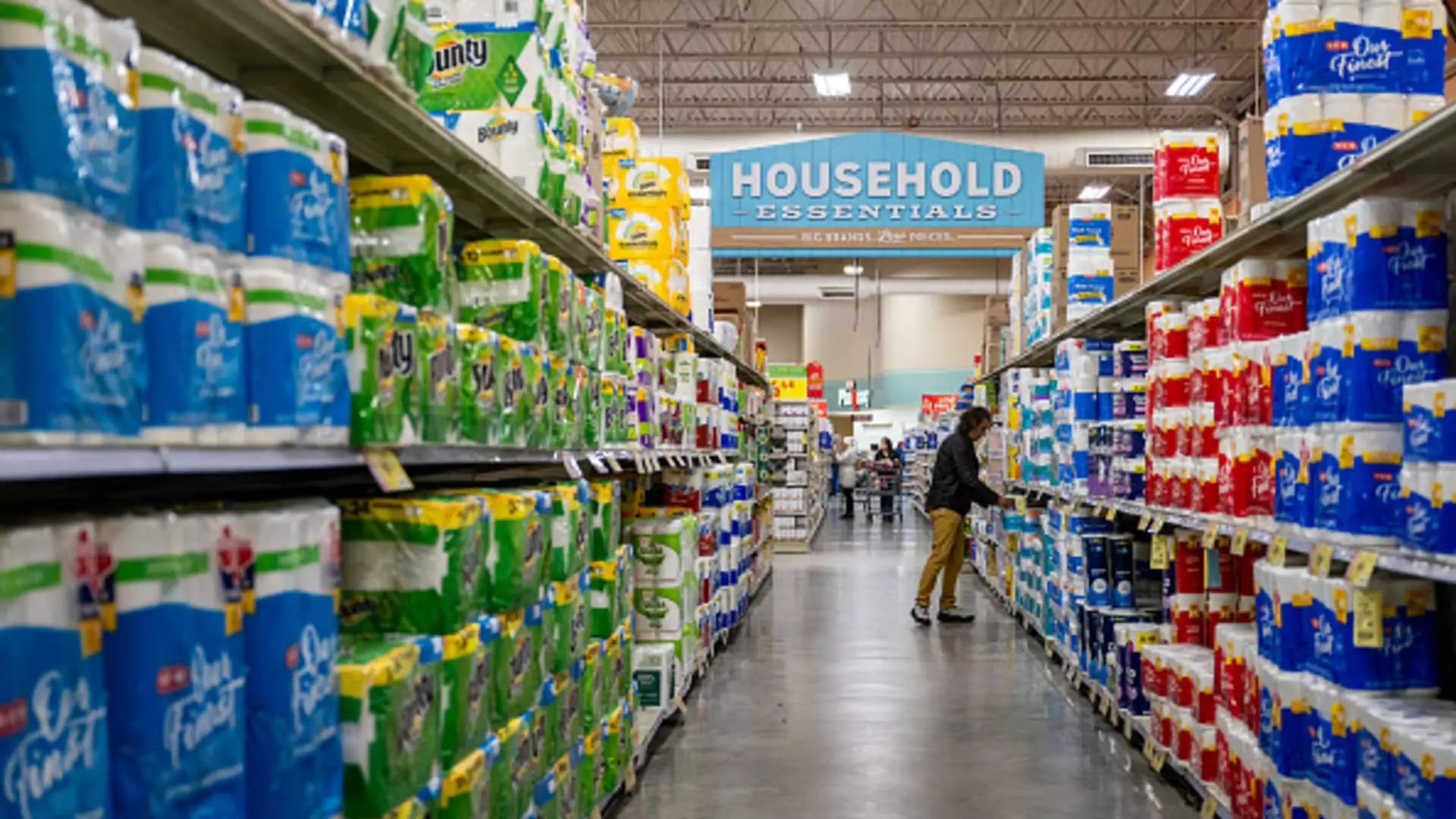In recent weeks, the United States has entered a new era of trade policies under the Trump administration, characterized by a striking increase in tariffs on goods from more than 180 countries. While the intention behind these policies is to bolster the American economy by bringing jobs back to the homeland, the ramifications extend far beyond the boardroom and into the kitchens and bathrooms of everyday Americans. As tariffs continue to roll out, shoppers can expect to see a noticeable spike in costs for everyday items like coffee, bananas, and even toilet paper. This seemingly innocuous shift in trade policy may very well turn daily routines into financial burdens, proving that economic policy can have dire consequences for the average consumer.
The Cost of Protectionism
While proponents of the “America First” trade doctrine often tout its intentions, it’s crucial to scrutinize its real impact. Yes, the idea of safeguarding American jobs is noble, but a simplistic approach overlooking the complexities of supply chains can introduce unintended hardships. The Consumer Brands Association (CBA) has raised critical concerns about how these tariffs threaten the availability of essential ingredients, ultimately leading to higher prices. Due to climate restrictions in the U.S., many staples—like tropical fruits and spices—cannot be sourced domestically. When tariffs are unilaterally imposed, consumers don’t just face empty shelves; they face new price tags that can squeeze family budgets in ways we simply cannot ignore.
Climate and Commerce: An Unfavorable Combination
Consider the coffee in your cup or the bananas you pick up at the grocery store—most of these products have their origins in climates that the U.S. cannot replicate. With the U.S. poised to impose a 10% tariff on imported Guatemalan bananas, prices are destined to rise. The irony is that while the administration aims to protect and uplift the American worker, its actions will force consumers to either pay more or forgo these products altogether. Advocating for an American-first approach does not mean shutting the door on international trade but rather finding a balanced path forward that accommodates the intertwined nature of our global economy.
Importing Complications
The long-term trend of U.S. agricultural practices has resulted in a dependence on foreign imports that the tariffs threaten to disrupt. The crude reality is that over 90% of the oats milled for food in the U.S. come from Canada, and domestic production has dwindled. When tariffs drive up costs for imported oats, it is unlikely that America’s farmers can ramp up production quickly enough to compensate. This disconnect reveals a fundamental misunderstanding in how domestic production works—an understanding that policy cannot merely dictate the market’s needs without suffocating it in the process.
Pressures on Household Products
Household staples are not immune to the effects of soaring tariffs. Essential items such as toilet paper, diapers, and shampoos rely heavily on imports for key raw materials like wood pulp and palm oil. The repercussions aren’t just hypothetical; they are imminent. As companies like Procter & Gamble begin to pass these costs onto consumers, families will feel the pinch on their bottom lines. It’s troubling to think that an administration seeking to prioritize American interests may inadvertently set the stage for increased costs that hit lower-income households hardest.
Consumer Reaction: A Mixed Bag
Ironically, while the markets reacted negatively to tariff announcements, shares in the consumer staples sector rose as investors moved from riskier options. This dichotomy illuminates a growing gap between what is good for Wall Street and what is practical for Main Street. As stocks for companies specializing in daily necessities increase, the average American grapples with a rising cost of living, making it essential to question the long-term strategy behind these policies. What good is an economy that creates wealth for shareholders if it simultaneously robs consumers of their access to vital goods?
Call for Reevaluation
In a time of economic uncertainty, we must strive for a more nuanced understanding of trade relations. The current approach risks alienating both consumers and the very businesses it seeks to protect. It’s time for policymakers to re-evaluate the broader landscape of American consumerism, focusing on strategies that ensure affordability and accessibility while maintaining the integrity of domestic industries. Balancing the act of protectionism with the needs of our everyday lives should not be an unsolvable dilemma—after all, a thriving economy should lift everyone, not just a select few.

